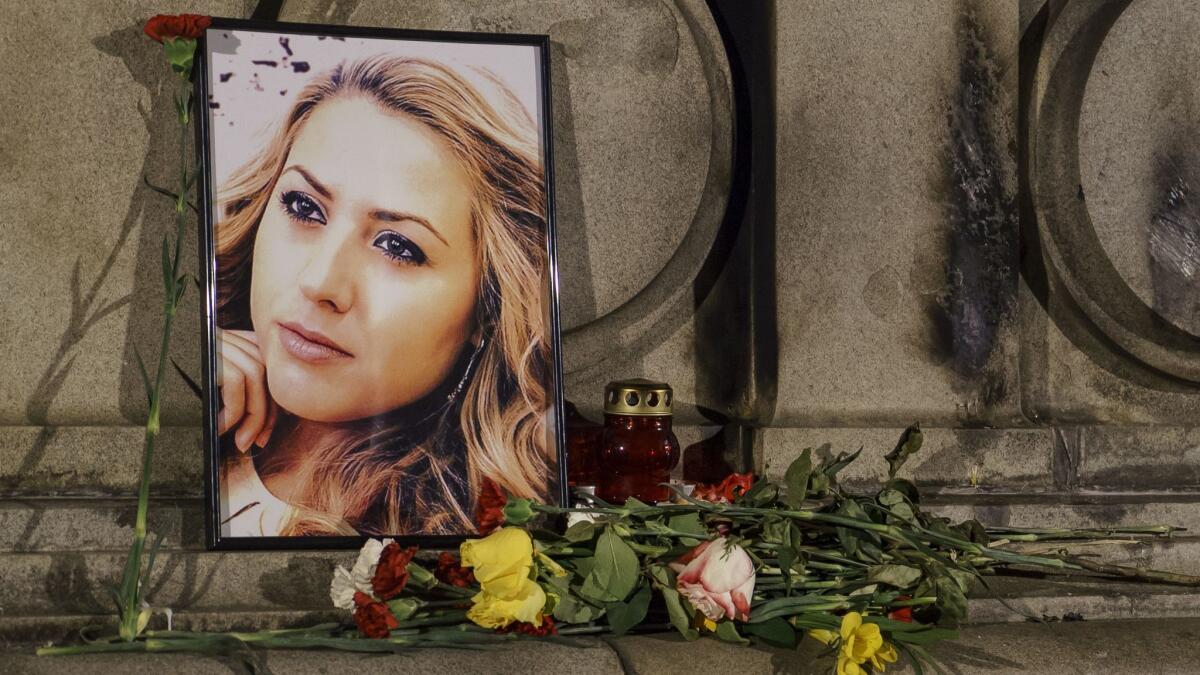Suspect arrested in the rape and killing of Bulgarian journalist

Bulgarian authorities on Wednesday identified a male suspect in his early 20s in the rape and murder of journalist Viktoria Marinova, a case that sent shock waves through Europe and triggered anxieties about press freedom around the world.
Authorities are now saying, however, that the motive was likely sexual assault, not an attack on a journalist, although the investigation is ongoing.
The suspect was detained in Germany and has since been charged with rape and murder.
Marinova, 30, was attacked on Saturday as she was jogging in a park in Ruse, a small city in northeastern Bulgaria. Her professional identity as a host on TVN, a local television station, focused on investigative journalism and immediately stoked fears about retributions against journalists exposing corruption schemes, especially in Eastern Europe.
In the last year, two other investigative journalists were killed in EU member states.
But early Wednesday, Bulgarian Prime Minister Boyko Borissov and Interior Minister Mladen Marinov told reporters that investigators had interviewed her family, colleagues and friends that “there is no apparent link to her work.”
The suspect, Severin Krasimirov, from Ruse, was born in 1997 and has a criminal record that dates back to 2007, including charges of theft. According to Bulgarian officials, Krasimirov fled the scene and headed to Germany, where he was ultimately apprehended. Initial lab results linked his DNA to samples found at the crime scene, authorities said.
Bulgaria is the most corrupt member state in the EU, according to global corruption watchdog Transparency International. It also ranks 111 out of 180 in terms of press freedom, the lowest in the EU, according to Reporters Without Borders, a French organization devoted to the protection of journalists.
Marinova, a former lifestyle journalist, had only recently transitioned into her role as the host of a program called “Detector,” focused on investigations. That program had only featured one episode before her death, and it had merely broadcast interviews with other reporters who discussed their own investigations, stories that had already broken weeks before.
Authorities noted that Krasimirov lived near the crime scene. “We continue to work on all versions,” said Marinov, the interior minister.
Even if Marinova’s murder proves unrelated to her work, many local commentators were quick to point out that crimes against women are endemic in Bulgaria.
Earlier this year, the government refused to ratify the Istanbul Convention, a Council of Europe initiative aiming to battle and prevent violence against women, after Bulgaria’s constitutional court ruled that the convention contradicted the country’s constitution.
So far, the Istanbul Convention has been ratified by 33 European states.
“In this situation it’s necessary to analyze in depth the problems in Bulgaria connected to violence against women,” declared a statement from the Assn. of European Journalists - Bulgaria.
More to Read
Sign up for Essential California
The most important California stories and recommendations in your inbox every morning.
You may occasionally receive promotional content from the Los Angeles Times.









